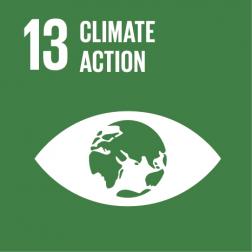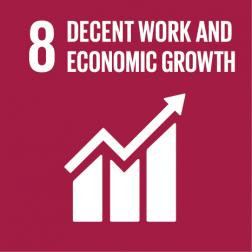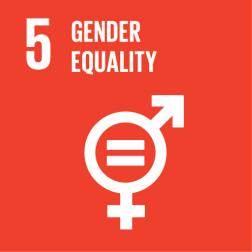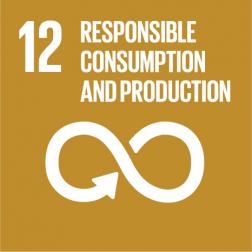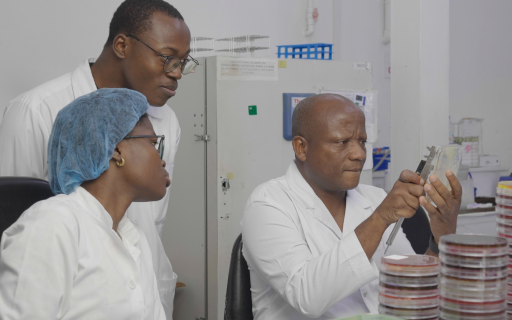Hyacinth Art House, social enterprise in Burundi
Kathia Gretta Iradukunda is a young eco-entrepreneur from Burundi. In 2021, she founded "Hyacinth Art House": a business that transforms the invasive and harmful water hyacinth plant into artistic, decorative and practical objects. In two years' time, Kathia's business has managed to harvest and process more than five tons of water hyacinth from the Tanganyika Lake.
Kathia not only finds protecting the environment very important, but also employs youth associations and more than 140 women. Moreover, Hyacinth Art House also advances Burundian culture by promoting local arts and crafts.
By now, Kathia has received international recognition for her work, including from Belgian Development Cooperation, by winning the Awa Prize.
Water hyacinth: a plant that threatens biodiversity
Although the lilac flowers of the water hyacinth look pretty, it is a non-native plant species that invades lakes and rivers. One of the most threatened lakes is Tanganyika – one of Africa's largest lakes. More than ten million people depend on the lake and its ecosystem. In 2017, the World Nature Fund even declared Lake Tanganyika one of world's most endangered lakes due to sediment, pollution, intensive exploitation and the water hyacinth.
The plant spreads very rapidly and invades the water surface, suffocating marine organisms and making it impossible for any living being to survive, thus threatening local biodiversity. This brings water ecosystems out of balance.
The invasive water hyacinth is not just an ecological challenge for Burundi, but also for the other countries bordering the lake: the Democratic Republic of Congo, Tanzania and Zambia.

From invasive plant to decorative and practical products
Kathia was inspired by Albert Mbonerane, Burundi's former Environment Minister, a politician and activist who spent years warning about the dangers of the invasive plant species. Influenced by his work, Kathia discovered a unique business opportunity in the abundance of water hyacinth.
During her studies in Public Health at the Université Lumière in Bujumbura, she learned that the plant can be transformed into a whole range of products. She soon discovered that the plant, after being dried for two to three weeks, could be woven into objects like handbags, rugs and baskets. That is how the idea for Hyacinth Art House was born.
Hyacinth Art House: a social and ecological company
With Hyacinth Art House, Kathia wants to protect the Tanganyika Lake by harvesting water hyacinth on a large scale. By doing so, the environmentally conscious entrepreneur works with youth associations to collect the plant and with a women's cooperative to weave the dried hyacinth into finalized objects, such as baskets or handbags.
My company, Hyacinth Art House, proves that in every challenge lies an opportunity.
This way, she creates jobs for the local Burundian population. At the same time, the collaboration with the women's cooperative in Bubanza ensures a better income for hundreds of women, meaning they can feed their children, send them to school and build their own homes.
In 2023, Hyacinth Art House harvested around five tons of water hyacinth, Kathia mobilized five associations to collect the plant and more than 140 craftswomen worked to transform the hyacinth into practical and decorative objects. In two years, Kathia and her business have had a considerable impact on the environment and the local community.

Support from the Belgian Development Cooperation through Enabel's Awa Prize
In 2022, Kathia won the People's Choice Award during the first edition of the Awa Prize, organized by the Belgian development agency Enabel in collaboration with BIO, the Belgian Investment Company for Developing Countries. The aim of the Awa Prize is to highlight the talent and leadership of female entrepreneurs in Africa and the Middle East in order to further encourage their creativity and perseverance. These female entrepreneurs are role models for many other young girls and women.
The Awa winners receive tailored business support and networking opportunities in Belgium to help them develop their companies further.
For Kathia, winning the Awa Prize was an opportunity to grow her business, to learn from other female entrepreneurs, gain insight into the rest of the world and further develop her entrepreneurial skills.
The Awa Prize is organized by Enabel, the Belgian federal government's development agency. Enabel is mainly funded by the Belgian Development Cooperation. Its mission is to carry out the political priorities of Belgium's governmental cooperation and promote sustainable international development.
With the Awa Prize, Belgium wants to emphasize the importance of female entrepreneurship as a way to achieve the 2030 Agenda for Sustainable Development. For women in particular, entrepreneurship can be a way to achieve financial empowerment. This positively affects their family as well, as this extra source of income helps support their households and strengthens the position of women within the family.
Unfortunately, though, women with entrepreneurial ambition often face various obstacles, such as difficulty gaining access to funding or training, restrictive social norms, limitations with regard to caring for their family and economic discrimination based on gender.

With her business, Kathia wants to become a major player in nature conservation by protecting the Burundian lakes and rivers. She has since become an inspiration for many women and girls. However, Hyacinth Art House has not just had a positive impact on biodiversity in Burundi. After all, climate change and protecting biodiversity are global concerns. Solutions exist, however, and are developed and implemented by countless local initiatives across the world, like Kathia's. And we can only tackle the global challenges together.
Kathia sells her water hyacinth-based products at her shop, Cercle Hippique, in the Burundian city of Bujumbura, as well as online. You can find them here: Facebook, Instagram and also by email hyacintharthouse@gmail.com


